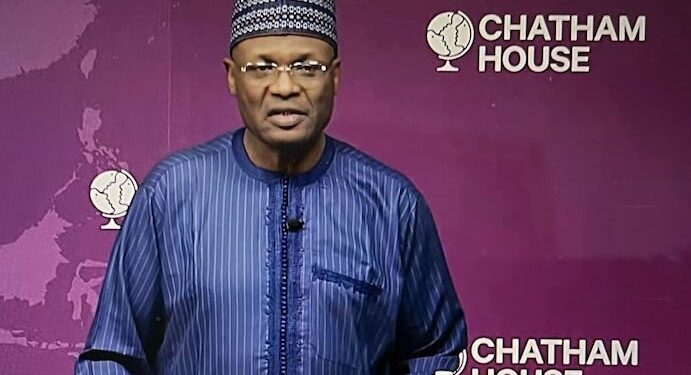Chatham House, an independent policy institute based in London, has released its analysis of the Presidential and National Assembly elections held in Nigeria on February 25, stating that the Independent National Election Commission (INEC) was inadequately prepared.
Senator Bola Tinubu, the presidential candidate of the ruling All Progressives Congress, APC, was declared the winner of the presidential election by the electoral commission.
According to INEC, Tinubu won the election with 8.8 million votes, followed by Atiku Abubakar, the presidential candidate of the main opposition Peoples Democratic Party, PDP, with 6.9 million votes, and Peter Obi, the presidential candidate of the Labour Party, with 6.1 million votes.
But, Atiku and Obi have filed actions with the presidential election tribunal to contest the results.
According to the Institute’s investigation, the electoral official has not learned any new lessons.
Dr. Leena Koni Hoffmann, Associate Fellow, Africa Programme, disclosed this information.
According to the investigation, INEC did not adhere to the electoral processes it established beforehand.
Hoffman noted, “The INEC’s performance and the disputes surrounding these results indicate that the electoral reforms and lessons claimed to have been learnt were not properly implemented and that as an electoral organization, it was much less prepared than it claimed to be.
Several voters and INEC employees were unable to locate their polling units for several hours due to the logistical problems of INEC and the widespread delay in the opening of polling units.
Despite the commission’s N305 billion budget allocation, less than half of eligible voters could participate in the polls, according to the institution. While Nigeria’s youth appeared energized in the run-up to the polls, it appears that the difficulty and potential risk of voting in Nigeria is severely limiting their ability to participate.
“The performance of the INEC and the controversy surrounding these results indicate that the election reforms and lessons proclaimed to have been learned were not fully implemented.
“With just 25,7 percent, voter participation in these elections is the lowest recorded since Nigeria’s return to democracy in 1999, despite being the most expensive. This indicates that Nigerian politics and governmental institutions continue to exclude rather than include.”


